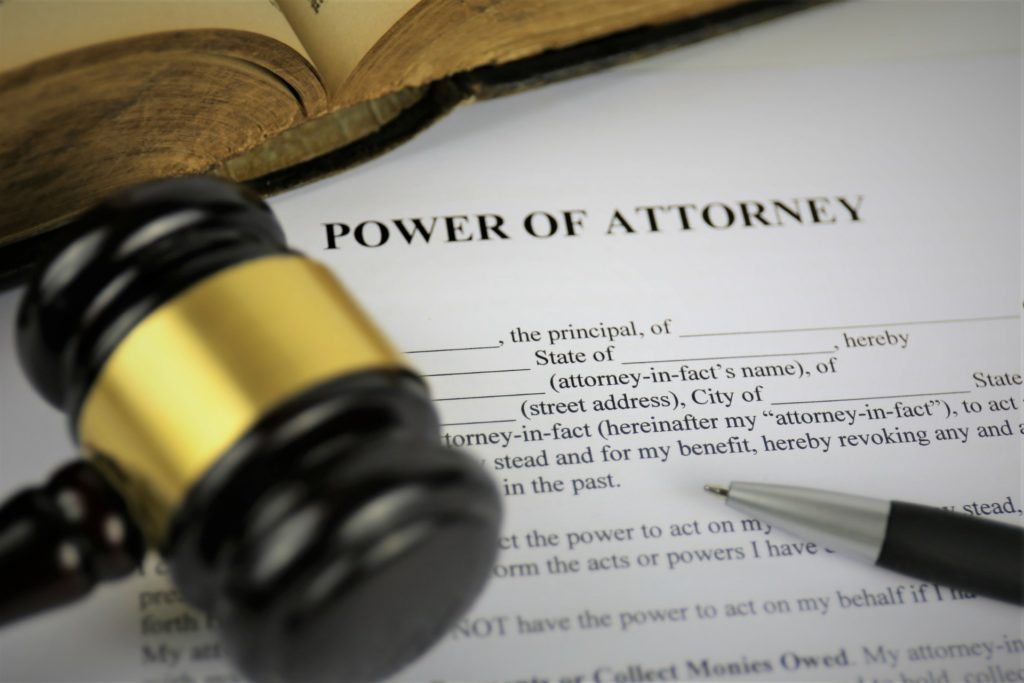
Estate Planning for Living
Does a person need a Power of Attorney document if that person already has a Last Will and Testament (‘Will’)? It is a critical piece of the planning puzzle.
Call us Anytime
Laurel, MD 20707
Downs Law Firm, P.C.
Home • POA;

Does a person need a Power of Attorney document if that person already has a Last Will and Testament (‘Will’)? It is a critical piece of the planning puzzle.

A common dilemma that families face upon the incapacity or death of a loved one is locating estate planning documents. While preparing the documents are the most important step, that is irrelevant if the documents are lost when they most need to be used.

It’s hard for a family to recuperate when the patriarchs and matriarchs have gone to glory, leaving a battle for who will carry the family’s leadership role and manage the family’s transition of wealth.

These agents take over your affairs in specific areas, if you become physically or mentally incapacitated.

Advice for adult children, so their parents in nursing homes and assisted living are safe from scammers.

Some people think that, because their assets are jointly owned with a spouse or are in a trust, they do not need a Power of Attorney, or that if they become incapacitated, their spouse automatically has the authority to make medical decisions on their behalf.

The possibility that a power of attorney might be rejected may be one reason not to simply pull a form off the internet and hope it will be accepted.

Does a Power of Attorney ever lapse? What happens if I change my mind and want to take the Power of Attorney back? Can the Power of Attorney refuse to return the authority?
A daughter has some problems, as siblings are hurt by parent’s estate planning intentions. With the choices you make of who you put in charge, you set the table for great or horrible results. Failing to have any plan is setting the table for controversies and fights. Families can grow together with brothers and sisters under the same roof. As time goes by and aging parents must make tough decisions, things can get difficult with feuds developing. An estate planning attorney can help the family through these difficult times, according to a Faribault Daily News article “Attorney can smooth path for families making legal plans,” The article tells of a reader who faced a problem from siblings, when the parents wanted to create a power of attorney for health and care decisions. The difficulties came from siblings who live far away but felt as if they not being included in their parent’s plans. For this particular family, one sibling lives 500 miles away and another lives 800 miles in the opposite direction. The one daughter who lives in the same community is the logical choice for power of attorney. What can be done? The parent’s foresight in updating their estate plan and related legal documents is to be congratulated. The one adult child who lives in their community, is the best choice for power of attorney for medical and financial decisions, so they can quickly handle an emergency situation. The parents have assigned the other two adult children as secondary POAs and everyone has already been informed that they will all receive equal shares in the estate. The out-of-town siblings should be happy at how fairly and expeditiously their parents are taking care of in these matters. Adults need someone to be named to handle health care and financial decisions, if they become incapacitated and need someone else to make decisions. Having a POA puts others in place to take over any tasks. Having a secondary POA designates someone to step in, if the primary is unable to act. When someone choses a POA because they don’t want to hurt any feelings, the result is often disastrous. It’s important to pick the most competent and trustworthy candidate. Some states also allow what is known as a “co-agent,” so that decisions are made together. But in an emergency, if the other person is not immediately present and time is an issue, this can lead to critical situations being unresolved. One way to soften this kind of situation is to have the entire family meet with the estate planning attorney in a family meeting. With a professional who is not emotionally tied to the family dynamics, decisions can be explained, and cooler heads may prevail. An estate planning attorney can advise you on creating an estate plan that fits your unique circumstances and help smooth over family issues, if necessary. We spend the time in consultations helping to weigh out these choices. Reference: Faribault Daily News (August 28, 2018) “Attorney can smooth
The position of POA can be revoked. It would be wise for everyone to have thought things through carefully and chosen a Power of Attorney (POA). It is important to remember that the decision can be changed in the future, according to nwi.com in “Estate Planning: Revoking a power of attorney.” One aspect of a Power of Attorney to carefully consider is, when does the authority granted in the document come into existence. A Power of Attorney can be an immediate document, which grants the full powers NOW. It can be a “Springing Power”, meaning that the authority comes into existence during events spelled out in the document, such as two doctors certifying incapacity. One the Power is in place, the terms of the document control what the authority is: you can give limited powers, full powers, or something in between. The person in charge does not own the assets, but is managing them as a “Fiduciary” which means as a highly trusted person, bring with it the responsibility of high loyalty to the person granting the power. When and how does the power end? There are three basic ways that a Power of Attorney can be terminated and the first is the date and time that it specifies, if it contains such language. POAs rarely have termination dates, because they are intended to be “durable” over an extended period of time. However, in certain circumstances, they can have a termination date. The second way a POA terminates, is at the death of the principal. Once the person in the POA dies, the attorney-in-fact authority ends, with the possible exceptions of making anatomical gifts on behalf of the principal, or the authority to make final arrangements or the authority to request an autopsy. Except for these unusual exceptions, the POA ends when the principal dies. The third way a POA terminates is when the principal executes a written revocation identifying the POA. For it to be effective, the attorney-in-fact has to receive actual knowledge of the revocation. Until they receive that actual knowledge, the POA revocation is not effective. To ensure that this is done properly, it is recommended that an estate planning attorney be involved, just to make sure there are no mistakes. A letter informing the POA of the revocation must be sent via certified mail, return receipt requested, using U.S. first-class mail. An email and a text follow up could take place, and a phone call would be a good idea. To make sure there are no deliberate misunderstandings, send a copy of the revocation to financial institutions that would be potentially targeted by the now former POA—if that is a concern. This includes the bank, financial advisor or any institution that is of particular concern. You want to make sure that these institutions are notified that the POA is no longer in effect. If the person refuses to sign the certified letter, you will need to prove that notice was given and that the person refused